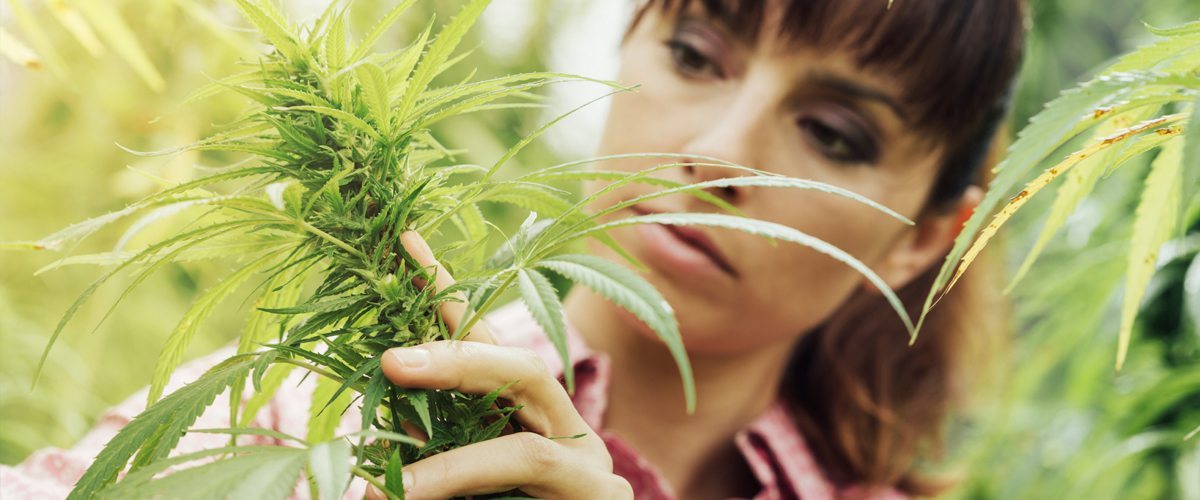[vc_row][vc_column][vc_column_text]
Researchers at Virginia Tech planted their first plot of hemp late this summer as part of their research pilot program.
Following last year’s legalization of state-sponsored hemp cultivation, researchers at Virginia Tech finally planted its first crop this past summer.
The passing of the federal Farm Bill 2014, which features Section 7606, allows state departments of agriculture and universities to cultivate industrial hemp for purposes of research. The law requires that grow sites be certified by, and registered with, their respective state.
Virginia became the 22nd state to legalize research-based hemp cultivation last summer when its General Assembly passed House Bill 699. The bill authorized the creation of the Industrial Hemp Research Program and established regulations for cultivating hemp in the state, which is only allowed by qualified researchers at public institutions of higher education and in partnership with the Virginia Department of Agriculture and Consumer Services (VDACS). Shortly after the bill’s passing, researchers at Virginia Tech applied for a state license.
“We look forward to working with our partners across the state to undertake research that has the potential to bring a new crop to Virginia’s already robust agricultural portfolio,” said Alan Grant, dean of Virginia Tech’s College of Agriculture and Life Sciences, after the university acquired a growing license. “Although we are only in the beginning stages of establishing this program, our research abilities, when combined with Virginia Cooperative Extension and our Agricultural Research and Extension Centers, can help this new initiative grow and benefit the state.”
Virginia Tech is focusing its pilot study on the agronomy of the different varieties of grain and fiber cannabis. The researchers will be exploring the ideal soil and time of the year for planting, as well as attempting to determine the amount of fertilizer each strain needs. After importing its hemp seeds from all over Europe, the university is testing nine separate grain varieties and eight fiber varieties.
“The plant is an interesting plant and I think, given the number of potential benefits from it, it’s been intriguing and engaging to be involved with it,” said John Fike, associate professor at Virginia Tech Department of Crop and Soil Sciences.
Each strain Virginia Tech is researching has been plotted on less than an acre and managing the plots will be done manually.[/vc_column_text][/vc_column][/vc_row][vc_row][vc_column][vc_single_image image=”17298″ img_size=”1200×250″ onclick=”custom_link” link=”https://www.medicalmarijuanainc.com/why-do-we-refer-to-hemp-as-industrial-hemp/”][/vc_column][/vc_row][vc_row][vc_column][vc_column_text]Hemp has a long history in the United States, including Virginia, where it dates back to the 1600s. Farmers in Jamestown were forced by law to grow hemp so that the colony had enough of the plants fibers for producing canvas, caulking, rope, cloth, sacks and paper. Farmers could even pay their taxes with hemp. Because of its familial association with marijuana, hemp had been prohibited in the U.S. since the 1930s.
Since the passing of the federal farm bill, however, nearly 30 states have enacted industrial hemp laws. There are currently a total of 28 licensed hemp growers in Virginia, three of which are at Virginia Tech. For now, Virginia only allows hemp farming for research purposes. Every year, researchers at each of the programs send a progress report on their findings to the VDACS and the governor.
“We’ve lost a lot of time in the last 60 to 70 years. We’ve got a lot of catching up to do in terms of what grows best where,” said Del. Joseph R. Yost, R-Giles, sponsor of House Bill 699. “If we start down that road, we’d not only have individuals growing it, but we’ll have an entire industry growing around it.”
Recently, domestic demand for industrial hemp has grown dramatically. A report published earlier this year found that U.S. sales of hemp-based products reached $573 million in 2015. Over 11 percent of the sales came from hemp cannabidiol (CBD) products, including those that are produced by Medical Marijuana, Inc.’s subsidiary companies.
According to Collegiate Times, James Madison University and Virginia State University are also running hemp pilot programs, but vary in their study focus. James Madison University is investigating whether conventional farming equipment can be applied to the management of hemp farms. Virginia State University is testing hemp’s ability to be produced as biodiesel.
Visit our news feed to read more about the developing U.S. hemp industry, or learn more about the differences between hemp and marijuana here. Visit our online shop to get started with our hemp CBD oil products, including pure hemp CBD oil, tinctures, capsules and body care products.[/vc_column_text][/vc_column][/vc_row]






